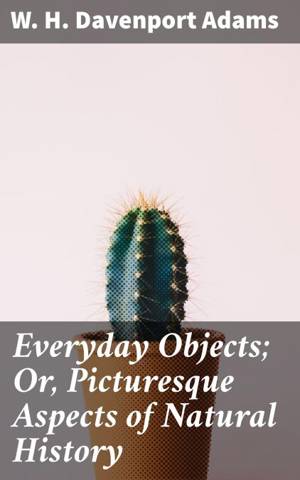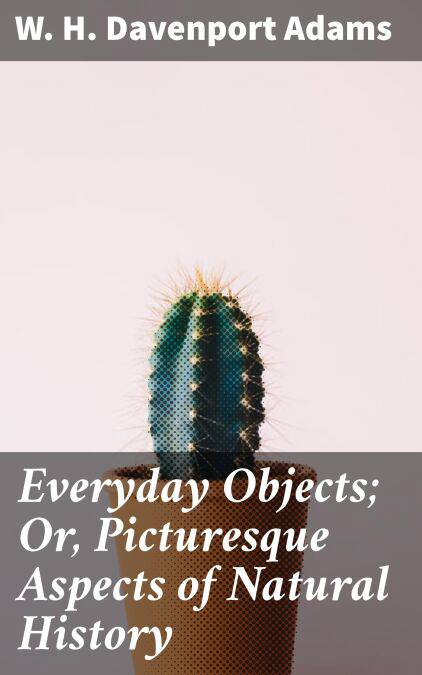
- Afhalen na 1 uur in een winkel met voorraad
- Gratis thuislevering in België vanaf € 30
- Ruim aanbod met 7 miljoen producten
- Afhalen na 1 uur in een winkel met voorraad
- Gratis thuislevering in België vanaf € 30
- Ruim aanbod met 7 miljoen producten
Zoeken
Everyday Objects; Or, Picturesque Aspects of Natural History E-BOOK
Exploring Nature's Beauty Through Everyday Objects
W. H. Davenport Adams
E-book | Engels
€ 0,49
Omschrijving
In "Everyday Objects; Or, Picturesque Aspects of Natural History," W. H. Davenport Adams presents a captivating exploration of the intersection between the mundane and the extraordinary in the realm of natural history. Written in a lyrical and accessible style, Adams takes readers on a journey that transcends the simple examination of objects, unveiling their intricate narratives and connections to broader ecological and aesthetic contexts. The book seamlessly blends scientific insight with poetic observation, illustrating how seemingly ordinary items in nature can reveal profound truths about the world around us and invite deeper appreciation of their beauty and complexity. W. H. Davenport Adams was an accomplished writer and naturalist, recognized for his ability to communicate complex ideas in an engaging manner. His passion for nature and its delicate intricacies is borne out of his background in science and a commitment to popularizing natural history. Adams's life-long fascination with everyday phenomena and objects likely shaped his desire to encourage readers to pay closer attention to their environments, fostering a sense of wonder and responsibility toward the natural world. This book is recommended for readers who seek a refreshing and enlightening perspective on nature's artistry that resonates beyond mere academia. Scholars, students, and casual readers alike will find joy in Adams's evocative prose and thought-provoking reflections, making it an invaluable addition to any library focused on natural history and literature.
Specificaties
Betrokkenen
- Auteur(s):
- Uitgeverij:
Inhoud
- Aantal bladzijden:
- 335
- Taal:
- Engels
Eigenschappen
- Productcode (EAN):
- 4064066202415
- Verschijningsdatum:
- 18/05/2021
- Uitvoering:
- E-book
- Beveiligd met:
- Digital watermarking
- Formaat:
- ePub

Alleen bij Standaard Boekhandel
Beoordelingen
We publiceren alleen reviews die voldoen aan de voorwaarden voor reviews. Bekijk onze voorwaarden voor reviews.











